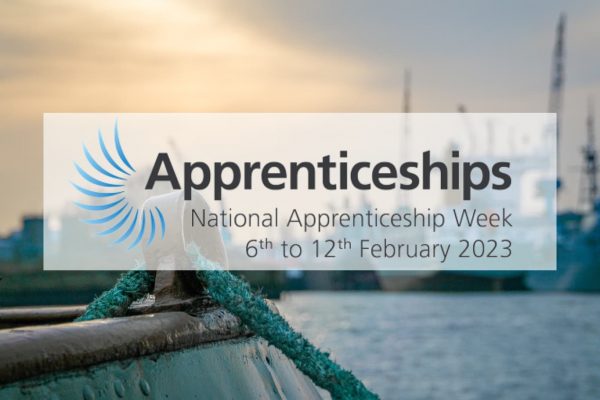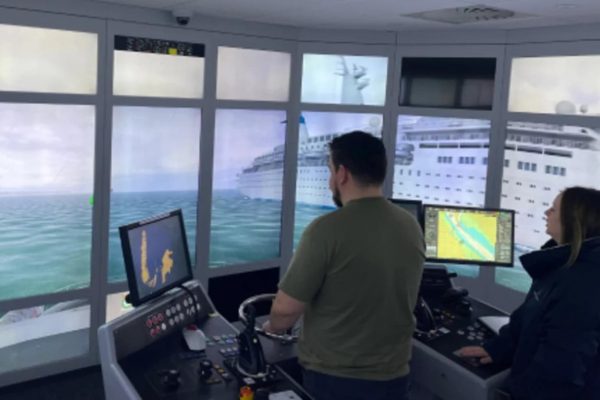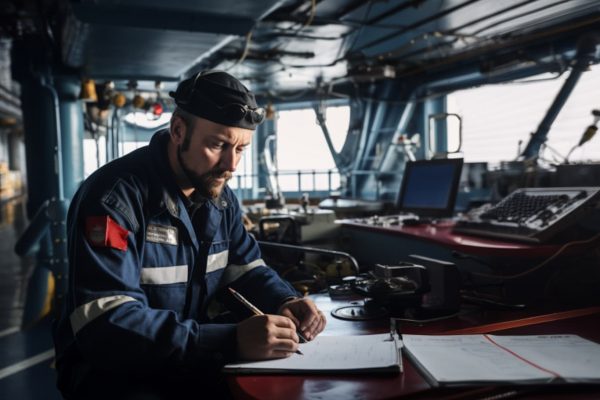“There has never been a more exciting time to work in our sector” and “ marine professionals working on some of the biggest challenges of our time”, according to Gwynne Lewis, Chief Executive of the IMarEST. Yet the maritime industry fails to retain, obtain, and train talent.
The Institute of Marine Engineering, Science and Technology (IMarEST) have recently published a report based on a survey of 700 marine engineers, scientists, and technologists to identify the shipping industry’s greatest challenges. The report has one question: “What do you think are the greatest challenges that will impact your sector/area of expertise in the short, medium and long-term future?”. The survey found that the lack of competent mariners with science, technology, engineering, and mathematics (STEM) skills will be the greatest challenge facing shipping in the future.
The survey highlights that challenges in the marine industry are deeply interconnected and vital to the future of the sector and a sustainable blue economy. The central challenges focus on attracting people to marine engineering, science, and technology careers, retaining and retraining existing expertise, ensuring opportunities for career progression, and developing skills for future roles.
The survey indicates that the impact of the Covid-19 pandemic, geopolitics, and health, well-being, and safety was raised as concerns in the short term. However, in the medium and long term, the central challenges focused on people, technology, and the environment. The maritime industry needs to ensure that it has enough people with the right skills for now and the future, and it must compete with other sectors to fill its skills gaps.
In the report, Steven Palmer, Chair of the Human Element SIG posits that “The industry is rounding on human factors as the biggest driver for improvement”, while Gus Jeans, Co-chair of Operational Oceanography SIG point out “We need to help people see change as an opportunity, not a threat to their livelihood.”
Recruitment of Talent In the Maritime Industry
The maritime industry struggles to attract young people into the sector. A 2021 survey by DfT revealed that only 20% of young adults and adolescents expressed interest in pursuing a career in the maritime industry. Researchers have identified several industry characteristics that serve as deterrents, including poor working conditions, a perceived lack of safety, and limited racial and gender diversity.
The IMarEST report posits that the maritime industry must inspire young people to work in cutting-edge roles that are currently emerging and welcome and retrain people from other industries who may have relevant experience and be looking for a new challenge. The industry can quickly close the skills gap by valuing experience and recognising the importance of transferable skills.
Gwynne Lewis, Chief Executive of the IMarEST suggests, “We need to inspire young people to want to work in the cutting-edge roles that are currently emerging.”
Retention of Talent in The Maritime Industry
Retaining existing expertise is invaluable, and the need for clear career progression is one of the challenges raised by IMarEST members. The report suggests that to ensure employee retention, employers must provide transparency around progression opportunities and career development. As roles change, taking advantage of opportunities for professional development is vital to keep fully up to date with new knowledge, skills, or capability.
Gwynne Lewis, points out “One of the challenges raised by our members is the need for clear career progression. I think this, together with feeling respected and valued, are at the centre of good employee retention strategies. Employers need to provide transparency around progression opportunities and career development.”
The Skills Gap in The Maritime Industry
Gwynne Lewis points out “Like many other professions, the marine profession is facing enormous skills gaps.” Indeed a 2019 Lloyd’s Maritime Academy study found that over 67% believe a skills gap exists in the industry, and 20% indicated a gap within technology and IT.
The IMarEST report emphasises the importance of training in addressing the skills gap in the maritime industry. The report suggests that the industry needs to focus on developing a competent workforce with STEM skills to tackle the marine industry’s challenges. This will require investment in training and development to provide opportunities for professional development and upskilling.
Captain Matt Bolton, Chair of Naval Engineering SIG points out “There is a legacy technology skills challenge but equally we are at the forefront of innovation in digital, cyber and autonomy, and whilst there is a competition for skills across all areas it is an extremely exciting time to be a Naval Engineer.”
Conclusion
The report highlights the maritime industry’s challenges and the importance of training in addressing these challenges. The maritime industry needs to focus on developing a competent workforce with skills in STEM to ensure a sustainable future for the sector and a sustainable blue economy.
The report shows that the Covid-19 pandemic has highlighted the importance of ensuring the health and well-being of seafarers. Training programs must ensure that seafarers are adequately trained to handle potential health crises and to maintain their physical and mental health during extended periods at sea.
Investment in training and development will be crucial to provide opportunities for professional development and upskilling. The industry must also prioritise health, well-being, and safety training to ensure the health and safety of seafarers.
A copy of the full Challenges in the Marine Industry: 2023 and Beyond by The Institute of Marine Engineering, Science and Technology (IMarEST) can be downloaded for free.




